Join us
Career
Fundamental Research Mission
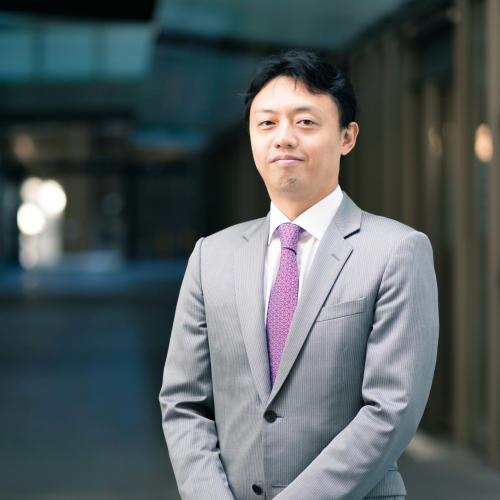
The Matsuo-Iwasawa Laboratory conducts a wide range of basic and applied research in Artificial Intelligence, with a focus on deep learning.
Artificial intelligence is a field that has existed for about 60 years, but little is known about the mechanisms of intelligence or the structure of the brain until now.
Of course, we have partial knowledge about the brain, but there are still many mysteries, such as how it is possible for us to have this kind of cognition, learning, speech, and consciousness in the first place.
We hope to elucidate the mechanism of human intelligence by creating intelligence through engineering.
With the mission of “creating intelligence,” we are particularly interested in world models, large-scale language models, semantic understanding, robotics, and brain AI.
Area of research
There are approximately 20 researchers (as of July 2024) in Matsuo’s lab, and each researcher set their own research themes under the mission of “Creating Intelligence.” Although we plan to expand our research areas in the future, our research is currently divided into 6 major research units: “World Models,” “Learning Algorithms,” “Robotics,” “Large-scale Language Models,” “Brain-inspired Intelligence,” and “Social Proofs. (For a list of recently accepted papers, please click here.)
In addition to research, students can be involved in educational activities aimed at systematizing knowledge and fostering advanced human resources, such as the World Model and Simulator Endowed Chair, large-scale R&D projects such as Weblab-10B and the GENIAC project, and collaborative research (social implementation) with companies.
For more details, please refer to the following slide.
The interview with Associate Professor Iwasawa mentioned in the slide can be accessed here.
Research Environment
Matsuo Lab provides a research environment to maximize members’ abilities. Please refer to the following information for details.
Research Environment of Matsuo Lab
We are aiming to realize a secure research environment for the promotion of science and technology.


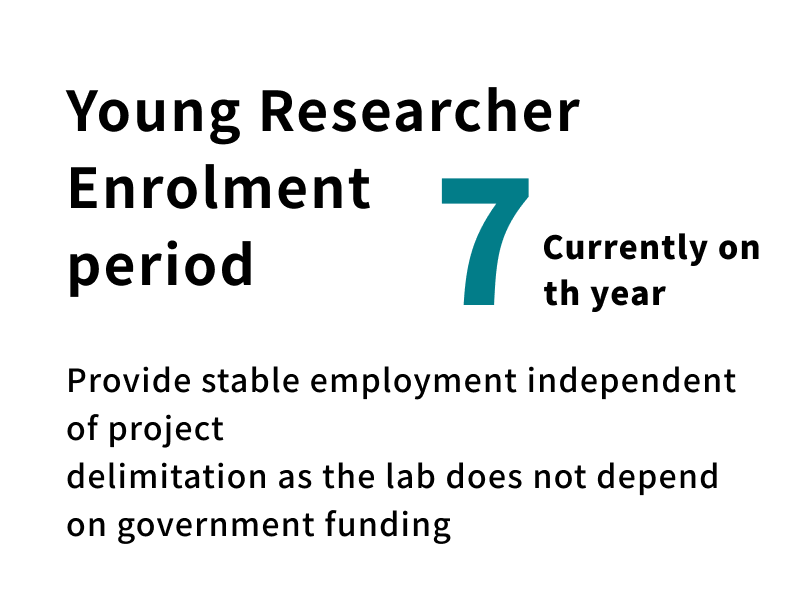
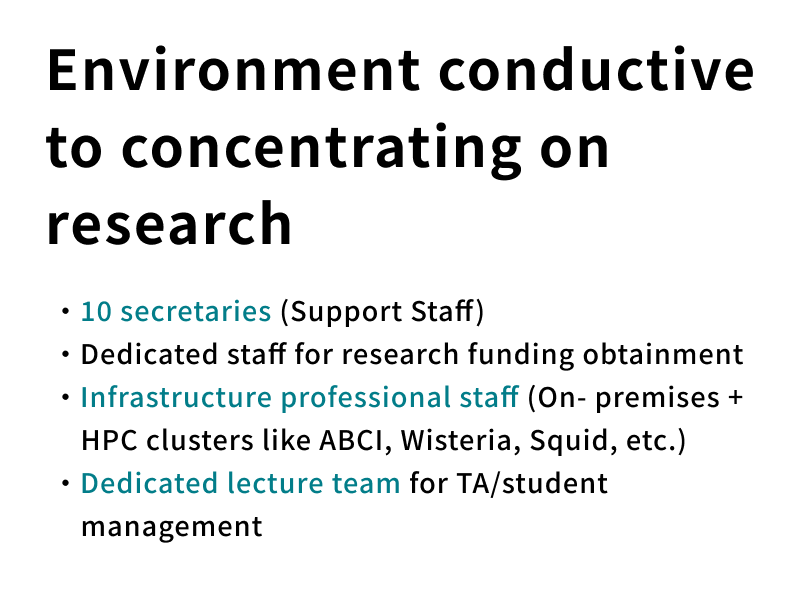
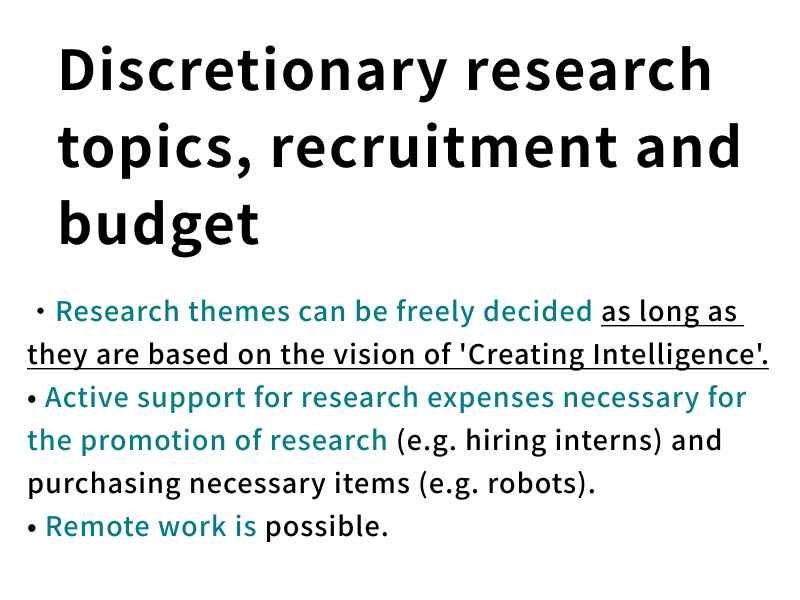
State-of-the-art HPC environment
We have numerous GPU/non-GPU servers installed for HPC environment projects and many domestic HPCs such as ABCI, Wisteria, and Squid. Our veteran HPC team maintains a highly virtualized HPC environment, allowing our researchers and engineers to focus on their work and develop quickly. Please refer here for more information on our HPC environment.
University Campus and Facilities
The campus has Starbucks, convenience stores, a well-stocked library, a cafeteria in the dining hall, parks for a change of pace, a pond with a view, historical buildings, and gyms to enhance productivity.
Diversity of Matsuo Lab Members
The Matsuo Lab is home to experienced researchers, engineers, and international students from around the world.
Researchers with diverse backgrounds, including those who are not graduates of Matsuo Lab, are active in the laboratory.
Flow of Recruitment
Researcher Recruitment
The flow of hiring researchers is as follows
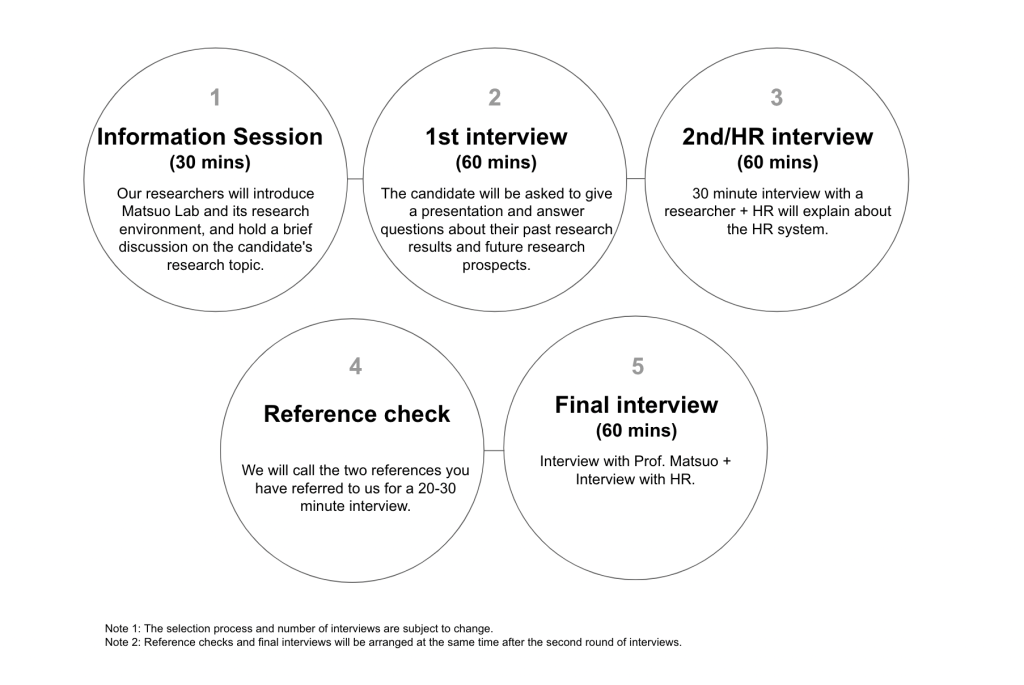
Details of 1st interview
Overviews:The candidate will be requested to give a presentation and answer questions about your past research achievements and future research prospects to several basic researchers
Format and duration:Online, 60 minutes
Preparations required in advance:
・A list of publications in the University of Tokyo style (we will share the format with you).
・Preparation of presentation material summarizing your past research and future research prospects
The flow of the interview
Approx. 10 minutes: Details of candidate’s research to date (including a list of accomplishments, major achievements, and awards received)
Approx. 15 minutes:Details of future research plans
Approx. 10 minutes: Discussion
Introducing Matsuo Laboratory
In addition to basic research, the Matsuo Lab also conducts lectures, joint research (social implementation), and incubation, aiming to realize an ecosystem that starts with research in academia. Members involved in basic research can also be involved in other activities, such as lectures and social implementation. Please refer to the following documents for the overall activities of the laboratory.
Interview
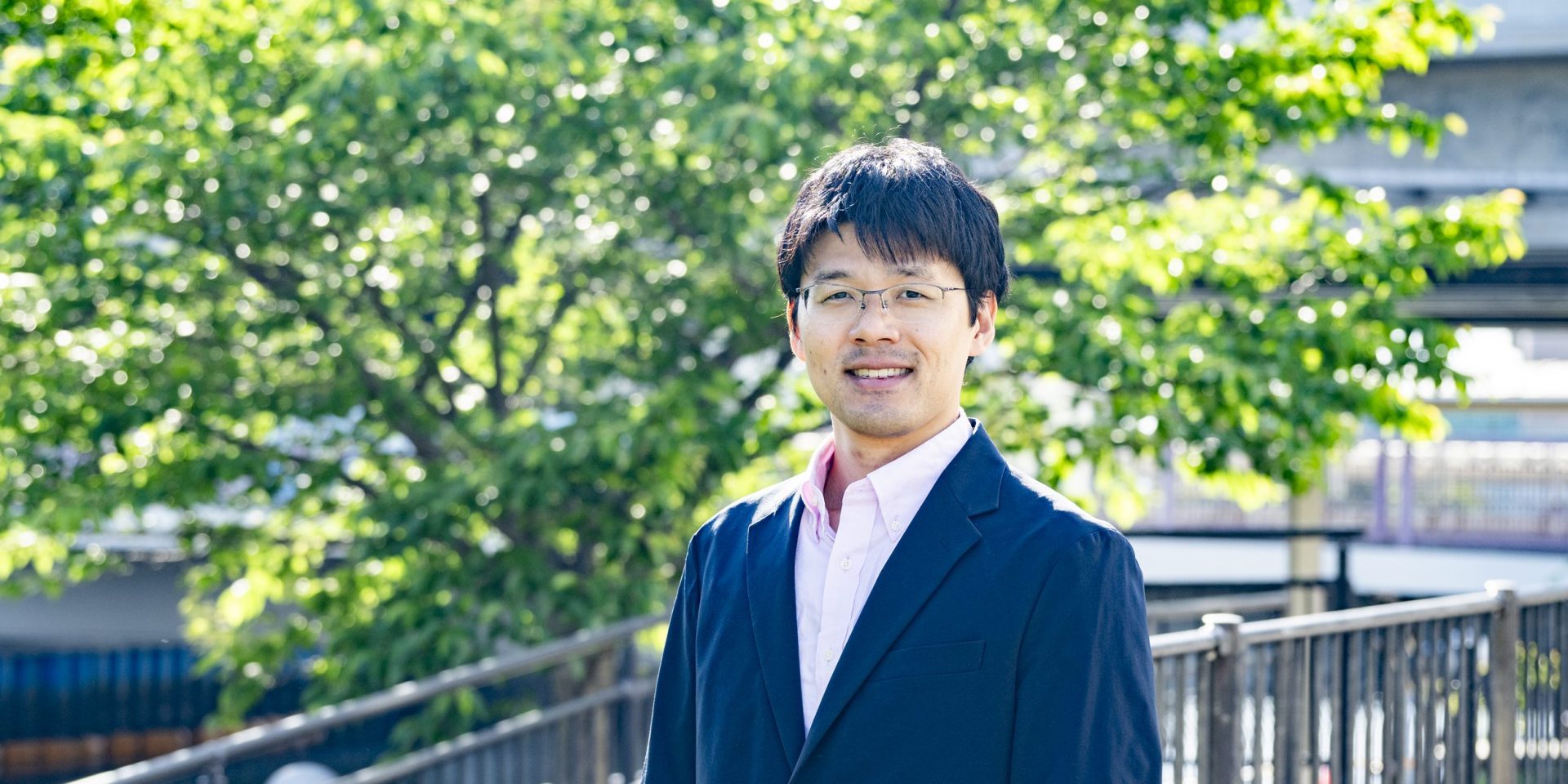
Behind the scenes of LLM research attracting worldwide attention. What is the research environment that generates discussions with top researchers?
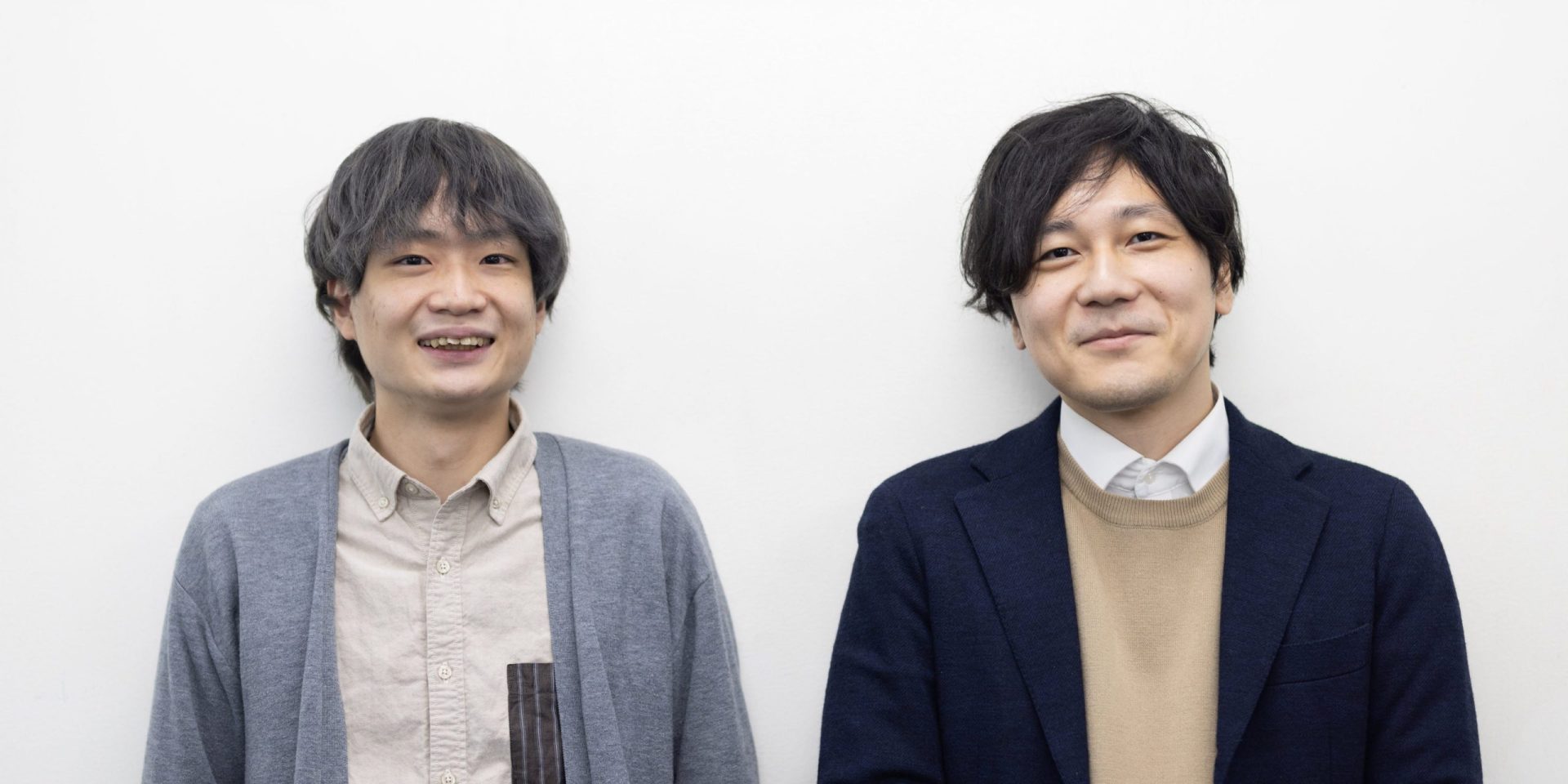
Why is the AI lab conducting robotics research? Challenges in a new research field and future prospects

What is the “World Model?” Why the Matsuo Lab is promoting research to realize intelligence.
Research Blog